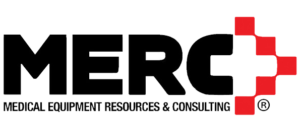Medical Equipment Inventory and Asset Inventory
A medical equipment and asset inventory is vital to your organization for various reasons. These reasons include financial management, tracking of items, and planning for future events or purchases. It is an often-overlooked practice in a hospital or healthcare facility, but should be conducted regularly, at least every three years. There are also ways to do an inventory that not only accomplish the goal of capturing the needed data, but in a way that is beneficial to a functioning hospital.
Doing an inventory for financial purposes is critical for hospitals, surgery centers, clinics, and other healthcare facilities. First of all, you do not know exactly what you have for assets until you have made a comprehensive list. Then, after a list is made, you can reconcile the inventory to an asset ledger or asset records to make sure all of the financials match the inventory. When this is accomplished, you have an accurate record of what is onsite and how it relates to your financial records. Asset tracking and management is an important function enabled by an inventory.
Thoroughly performing the process involves searching the entire hospital, surgery center, or clinic and locating assets, then recording the demographic data on medical equipment and other assets. Asset tagging can be part of the process, giving you another identifier to help continue to track it. Barcode tags, or in some cases RFID or ultrasound tags can be used to actively track an asset and its location. Helping to plan for future capital expenditures or events such as building, moving and/or closing are other good reasons for an asset inventory. When a group of equipment is recorded and assessed, you know how many you have and what the condition of the items is. So for planning purposes you can identify opportunities for reuse of assets, purchase requirements, and future needs to dispose/liquidate items for the new healthcare facility.
Performing an inventory is a challenging and complex task. Some of the reasons that give benefit in hiring a medical equipment consultant for the job are expertise in the collection of data, knowledge of the equipment, speed and efficiency, and to minimize operational impact to your workforce. When going through a hospital, surgery center, or clinic, it is the job of the medical equipment consultant to perform the inventory so staff doesnt have to work overtime or shift their focus to non-core work. Also, MERC focuses on your facilitys patient satisfaction goals and works to perform the medical equipment inventory in a low impact way.
The value of having an accurate asset inventory and being prepared to make decisions on future capital requirements, combined with the value of having that information provided quickly, efficiently, accurately and affordably by an experienced firm makes it worth considering. When you consider exploring your options, please contact MERC.

